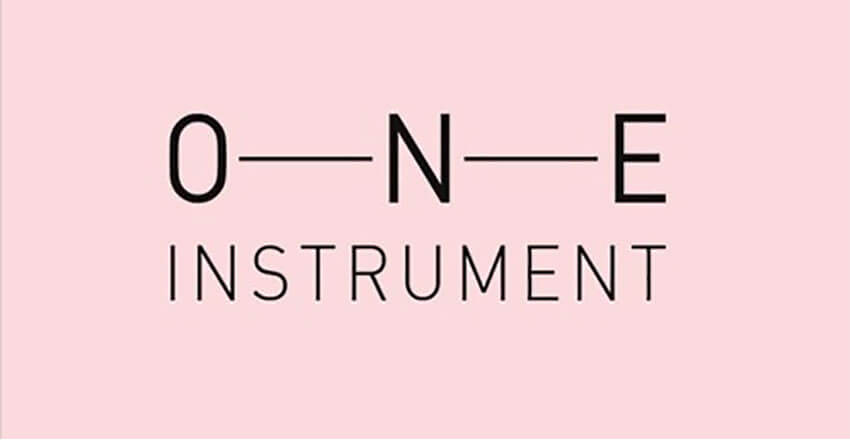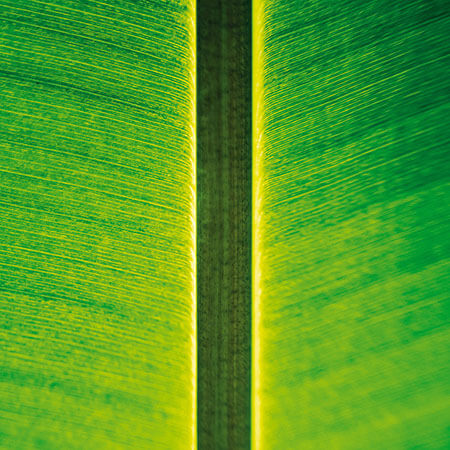Text by CLOT Magazine

Grand River (Aimée Portioli) is a Dutch-Italian composer, musician, and producer based in Berlin and the mind and soul behind One Instrument record label. Portioli’s background in traditional music composition and the study of several musical instruments took her spent many years working as a sound engineer and composer: I have been playing instruments since I was very little and sung in a children choir for many years from the age of 6. My first instrument was the classical guitar and afterwards the piano. I also studied a bit of cello.
Compositionally, Portioli is interested in finding new ways and exploring how to approach instruments differently during the composition phase. She says she could never redo the same things over and over. There’s always this need to explore and do things in new ways. The musician was also interested in exploring new ways of expression within a certain genre: I am very fascinated by all kinds of instruments and would love to use more types in my compositions and not only stick to the electronic ones. Recording an acoustic instrument brings some extra intimacy to the process and I like that feeling.
Portioli has also produced film scores and sound design, and she debuted with an album on Donato Dozzy and Neel’s record label Spazio Disponibile.
In 2016, Portioli kicked off One Instrument, the record label where she releases sound experiments from different artists composing pieces by using only one instrument, challenging and limiting each of the artists in producing a composition by using only this one instrument of their choice. She shares that One Instrument started as a need for herself. She had a Korg MS-20 (the 1978 version) in her studio, which she had borrowed from a friend for quite a while. At the same time, she was finding herself switching too quickly from one instrument to another while composing and wasn’t happy about that. That’s when she decided to stick with one instrument for a whole composition and chose the MS-20 do that. For the musician, it was extremely helpful to put some limits on the composition process and, at the same time, discover that the instruments itself deserve to be explored and studied with more time and patience.
The idea of using one instrument is not new in contemporary composition, this being obvious with classic instrument soloists but also within the electronics realms -think of Suzanne Ciani and her use of the Buchla. In the last few years, it seems there’s been a resurfaced interest in electronic musicians for recording entire albums using only a single instrument (see our recent interview with Thomas Ankersmit and his use of the Serge modular system). Philip Sherburne wrote an insightful review in 2017, highlighting the clear compositional strategy of using methods as such because having to overpass constraints is a powerful creative motor.



When we asked about the artist and instrument selection process, Portioli says it wasn’t easy at the beginning: the concept was new so I just started to ask composer friends if they wanted to create a musical experiment with one instrument and by following the label’s guidelines. Pretty quickly things went well and she started to receive many demos, with all sorts of instruments, so far, and after 9 releases (5 vinyl and 4 VA digital), she’s put out recordings from programming languages like Max/MSP, to synthesisers like Metasonix D-1000 or ARP 2600, guitars like Fender Stratocaster Vintage (70’s) or ESP MH-1000 Floyd Rose, synth modules like Subconscious Communications Model 52 Vampire or Noise Engineering Basimilus Iteritas Alter, plug-ins like LuSH-101, until the more natural human voice.
The most recent releases are coming from Donato Dozzy, Indonesia’s experimentalist Fahmi Mursyid or Jazz vibraphonist Alessandro Di Puccio, who are using an EMS Synthi AKS, Java and Sundanese’s traditional instruments and a vibraphone respectively. Donato Dozzy says this will be his most psychedelic album to date (it will be released in early December). ‘One Instrument Sessions – Donato Dozzy’ highlights the artist’s most experimental side on what will be his 7th studio album.
These tracks are the honest outcome of a long and intimate engagement with the instrument, which was produced in his San Felice Circeo studio during an “altered state” night in October 2013. The resulting music is one of fluid continuity, Dozzy’s most extensive, vigorous and determined application of real-time studio recording to date. The intensity of both parts of “Slow Train” is comparable to a mindfulness experience in which the listener’s perception of reality slows down, enabling every small detail of the sound to become alive and increasingly vivid.
In Fahmi Mursyid mini-album (published in September), 6 tracks take the listener on a warm, experimental journey of varying timbres. The artist has always had a personal interest in traditional Indonesian instruments, specifically from Sundanese culture, the second-largest Indonesian ethnic group, native to the western part of the island of Java. Paying homage to this source of inspiration, he has chosen to use Indonesian instruments for almost all of the tracks on the 12’’. Considering the strict guidelines One Instrument gives the artists, Mursyid has gotten the most out of his chosen instruments. With each of the 6 different acoustic instruments, he has eluded clichè and surpassed physical limitations to shape a bold, alternative musical language. All tracks are recorded with only one condenser microphone.
And with Alessandro Di Puccio’s 7” vinyl (released in November), is the most minimalistic work of the label to date; three one-take vibraphone tracks recorded by the musician eighteen years ago. The tracks are a selection from eleven pieces that were originally created for a theatre piece called “Il silenzio è d’oro” (“Silence is golden”). After 18 years of being kept in a drawer in Di Puccio’shome, these previously unreleased works will finally see the light of day. Short and powerful, these tracks suddenly break the silence and reflect Di Puccio’s interest in evoking virtuous and tender emotions. “One Instrument Sessions – Alessandro Di Puccio” gives the listener a feeling of simultaneously being tenderly cradled and awakened. Playful and bright, the tracks reflect the joyful nature of the vibraphonist and composer who, since 1986, has been experimenting and collaborating with many internationally renowned musicians.
Portioli says sometimes artists share with her the challenges they face when composing with only one instrument. With others, they go through the label’s guidelines (that are written down and can be downloaded). She goes on telling that on certain occasions; artists thanked her for limiting their composition process, which they discovered interesting. It’s not only about using one instrument but only not using effects besides reverb. In the beginning, it may be weird but becomes rewarding in the end as you will stay more true to the timbre of the chosen instrument. After making a track herself with the Korg MS-20 -the first track of the label in 2016, she’s thinking about making something new but has not decided which instrument to use; maybe this time will be an acoustic one.






